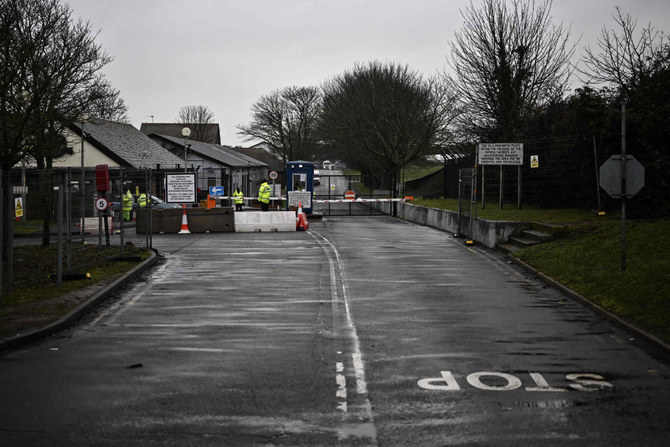
After the tumult of the past two and a half years, the hospitality sector had been hoping for a bumper 2022 to recoup its pandemic losses. But while businesses have seen a surge in customers seeking to spend their lockdown savings, the twin pressures of staff shortages and rising costs are now forcing many clubs, restaurants, pubs and hotels to turn people away and close their doors midweek.
Bouncers are one role in particularly short supply. Three-quarters of clubs, pubs and bars said they were short of security staff, with some closing earlier or shutting entirely on Tuesdays or Wednesdays as well as Mondays, according to the Night Time Industries Association (NTIA).
Job postings for security staff have surged by 59% since February 2020, just before the pandemic kicked off – well ahead of the 45% overall increase in ads for all roles, according to the work search site Indeed. However, interest in such positions has fallen by 8% despite a 5.1% year-on-year increase in pay.
The figures suggest the shortages that began during the pandemic are still a problem across the industry as high employment gives jobseekers an abundance of choice.
Aaron Mellor, the boss of Tokyo Industries, which runs 47 bars and clubs in the north of England, said a number of his venues were now operating one or two fewer nights a week and moving the time of last entry earlier because of a mix of higher costs and a shortage of experienced and qualified door staff. “We’ve reduced midweek nights to compress trade,” he said. “It’s not just about staff, it’s about utilities and everything else.”
He said that making last entry earlier meant experienced staff could be redeployed inside the venue, although the shift to club-goers buying tickets in advance rather than turning up spontaneously had made the change easier. “We get relatively few walk-ups,” he said.
While there are 250,000 licensed door security staff in the UK, 24,000 of whom are women, the NTIA said many had moved on during the pandemic and found other kinds of work with more sociable hours.
Michael Kill, the association’s chief executive, said resources had been stretched, as people were “reluctant to return to a role that is somewhat fragile to further closures”. He added there were fears the shortages would worsen as the most experienced security staff were diverted to festivals over summer.
Kate Nicholls, the chief executive of UKHospitality, the trade body that represents thousands of restaurants, bars and hotels, said about a quarter of its members had been forced to reduce their trading hours as the situation with security staff reflected similar recruitment problems across the industry, with chefs still in particularly short supply.
She said hospitality businesses were still about 10% short of staff, double the level going into the pandemic, and were lacking 188,000 permanent staff and 25,000 temporary or seasonal workers. “Some are closing certain days of the week and certain servings, such as breakfast or lunch,” she said. “Hotels are limiting the number of beds or rooms, so there is a significant revenue hit.”
These shorter hours have been brought in even before any significant cut in spending from customers as the cost-of-living crisis begins to bite. Pubs and restaurants have warned that they are likely to see fewer visitors as they are forced to put prices up and cut back on discounts because of rising costs.
Nicholls said that, on average, businesses could be doing a fifth more trade if they were operating with a full complement of staff.
Philip Turner, founder and managing director of the Chestnut group of pubs in East Anglia, said three or four of its 15 outlets had now shifted to five days a week instead of seven, closing on Monday and Tuesday.
He said it was becoming increasingly difficult to book dinners on Monday and Tuesday nights across the industry, amid the struggle for staff. “Throughout lockdown we found a number of staff were reluctant to come back to work and now there is a real shortage of labour,” he said. “It has never been easy hiring, but Brexit and Covid have not made it any easier.”
While he said the group’s vacancy rate was similar to before the pandemic, he pointed out that it had moved to more four-day working and had begun offering other perks such as a mini-festival for staff, flexible hours, and bonuses for more junior kitchen staff as well as the top chefs. The group has also had to put pay up by between 7.5% and 10% on pre-pandemic levels.
“We are trying to create an environment where people want to work for us as a brand,” he said. “It is not all about money. You are not going to win the battle without a whole variety of things that are pertinent to how people want to live.”











